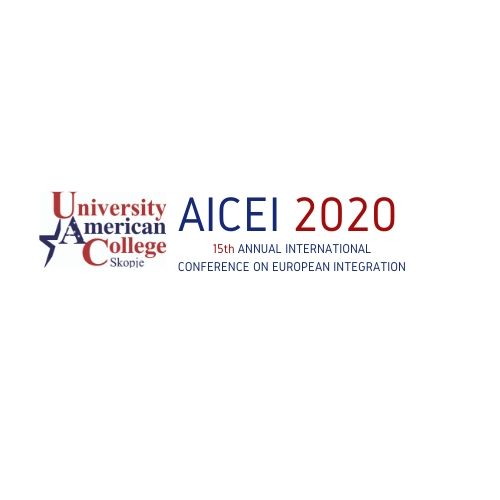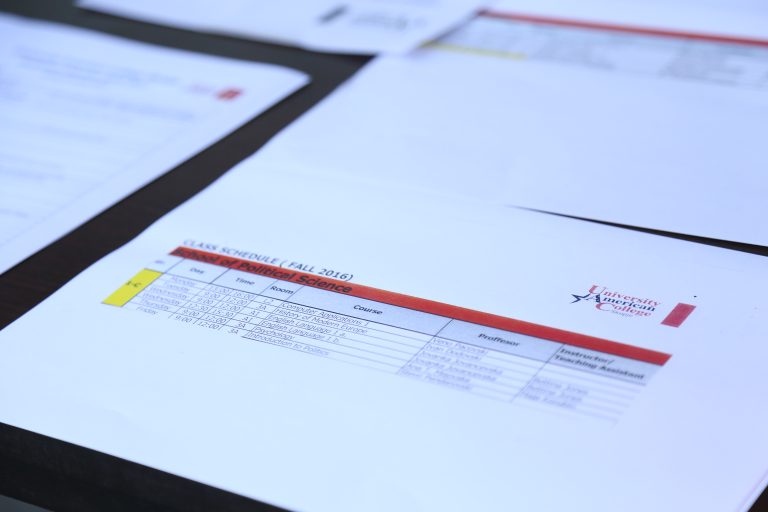Fifteenth Annual International Conference on European Integration – AICEI 2020
University American College Skopje is proud to announce the
Fifteenth Annual International Conference on European Integration – AICEI 2020
– Climate Change – Challenges and Building Resilience –
Virtual Conference
21st of May, 2020, Skopje
This multi-disciplinary conference aims to bring together leading academics, researchers, research scholars, individuals and non-governmental organizations, to exchange and discuss their experience and views on all aspects of climate change and prospects of building resilience. It seeks to examine the effects of climate change on every aspect of the individual, social and global functioning. Taking into consideration the pressing need to undertake action to avoid the worst impacts of climate change, this conference aims to critically reflect on the thoughts, actions and ideas that may raise awareness, knowledge and motivation to combat this global threat.
This year the conference welcomes both paper and poster presentations by scholars and professionals from any related field, as well as contributions by doctoral candidates to the doctoral colloquium.
The broad topics of the conference include, but are not limited to:
- Track 1 – Business, Economy, Finance and Innovation
- The role of businesses to respond to climate change and support resilience;
- Green energy – impact, challenges and future considerations;
- Challenges and opportunities for entrepreneurial firms;
- Role of the business sector in developing, adapting and delivering climate ready solutions
- Finance industry and its prospects in funding climate change adaptation projects
- The role of innovative firms in creating environmental actions
- Are family firms more “green” than non – family firms?
- The role of social enterprises in combating climate change
- Climate change insurance and risk transfer
- Risk management in climate-sensitive sectors
- Waste management as a business opportunity;
- Digital transformation
- Challenges to innovation, in particular in South East Europe
- Track 2 –Policy, Justice, Governance and Ethics
- Facilitating the implementation of the Paris Agreement requirements
- Governance, climate justice and ethics
- Legal implications, changes in the legislation on Europe and in CEFTA;
- Legal rights, rights of citizens as declared by national constitutions and EU directives
- Social and political solutions to environmental challenges;
- The role of state in the creation and implementing of “green policies”
- Local “green initiatives” and local self-governance;
- Evolving challenges to the European project,
- Analyses of waste management regulations: current state and perspectives
- The role of social entrepreneurship and social innovations in modern “green “economy”
- The role of “green” political parties
- Innovative youth cooperation and regional initiatives
- Innovative schooling and education models that is environmentally conscious
- Track 3- Health and Society
- Impact of climate change on society and human health;
- Mental and physical wellbeing and climate change
- Climate change, poverty and wellbeing
- Increasing human resiliency to disasters
- Temperature-related health impacts,
- Impact of air quality on human health and wellbeing ,
- Vector-borne diseases,
- Water-borne illnesses,
- Changes and challenges of nutrition with focus on climate change affected communities,
- Impact of climate change on mental health and populations of concern.
- Track 4 – Water-energy-food-agriculture nexus;
- Practical methods and policy guidelines for creating sustainable agriculture and forestry
- practical methods and policy guidelines that enhance resilience in food safety and production
- Weather and climate information and impact on agricultural production and planning
- Adaptive capacities agricultural communities
- Challenges for the future of rural livelihoods
- technological solutions for water management
- Water quality and quantity
- Track 5 – Urban planning, energy efficiency and infrastructure
- Innovation in urban planning and architectural design related to climate change;
- Water supply and sanitation
- Transport
- Energy efficiency and conservation
- Renewable energy sources
- Biofuel and bioenergy
- Track 6 – Global challenges
- UN Sustainable development goals
- Climate change-induced migration/ Climate migrants
- Responses and challenges of the Paris Agreement targets
- Issues of security and conflict
- Solutions for climate change adaptation and disaster risk reduction
Check the PROGRAM in the following LINK
More about Conference www.aicei.uacs.edu.mk







